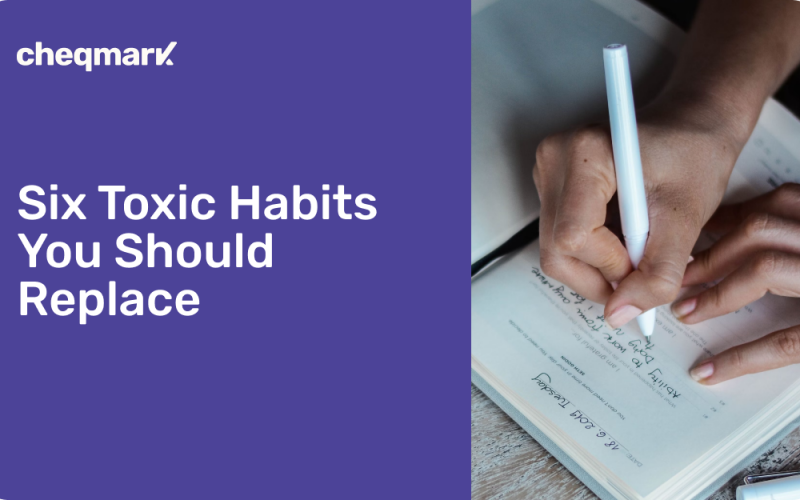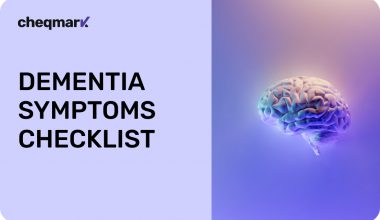People can become very focused on developing good habits they will keep for life. They try to work out often, eat well, and take care of their overall health. Even though getting into these good habits is great, your bad ones could be holding you back.
Not all bad habits look the way you think they will. They don’t always appear as a habit or illness needing treatment. However, when you replace them with non-toxic practices, you’ll immediately notice how your life becomes more manageable and how you get “lighter.”
This guide will look at a few examples of habits you might want to replace. On your way, we encourage you to use a checklist maker. It relieves your mind and helps you track progress.
Now, let’s get to the habits. Consider replacing the following:
Worrying with meditation

Typically worrying leads to pessimistic thinking, unpleasant feelings, and stress when we picture the worst-case scenario, fret about potential danger, or project our insecurities onto the future.
Concerns may center on whether or not the person we’re seeing will like us, whether or not our forthcoming trip will require an emergency landing, or whether or not the persistent discomfort we’ve been experiencing is indicative of a more serious medical issue. However, the majority of our fears are unfounded. That’s because anxiety is typically fabricated by the mind and has little basis in reality.
If you find yourself stuck in a worrying storyline, remember that you have the power to stop it. Meditation can be a great way to break out of the anxious cycle that worry puts us in. Get out of your head by moving around. A few minutes of deliberate breathing work (like a 10-15 minute meditation while sitting still) or body movement (like a yoga class) can change everything.
Blaming others with helping others
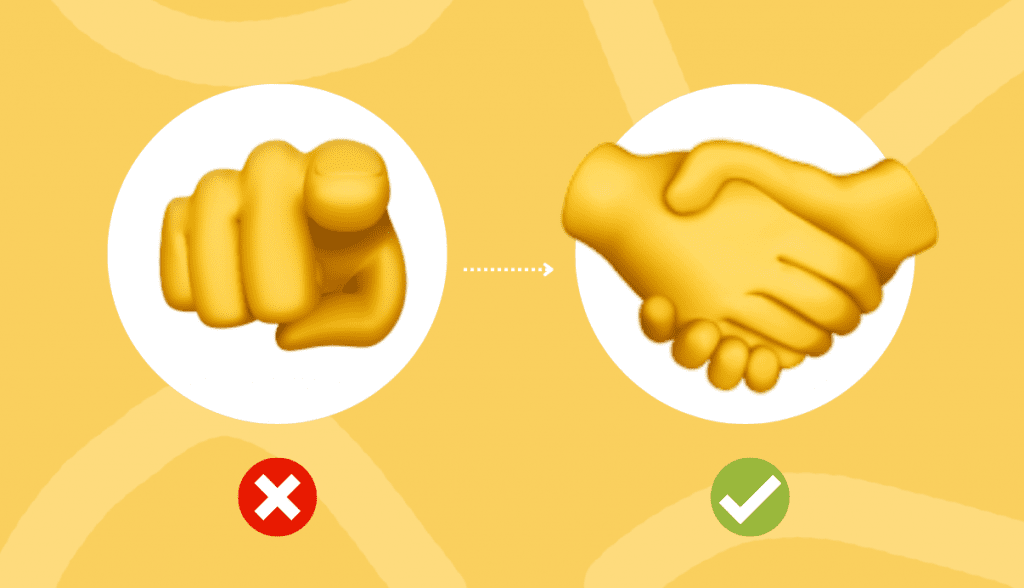
When things go wrong, we all tend to blame other people or outside forces. We tend to think that what people do shows who they are rather than considering that social or environmental factors may influence their actions.
Everyone makes mistakes now and then. We can’t live without it. However, we get nowhere by blaming and shaming each other for being flawed. You learn from your mistakes, so let other people do the same. Problems and mistakes should be used to teach, not to shame.
Social networks with activities
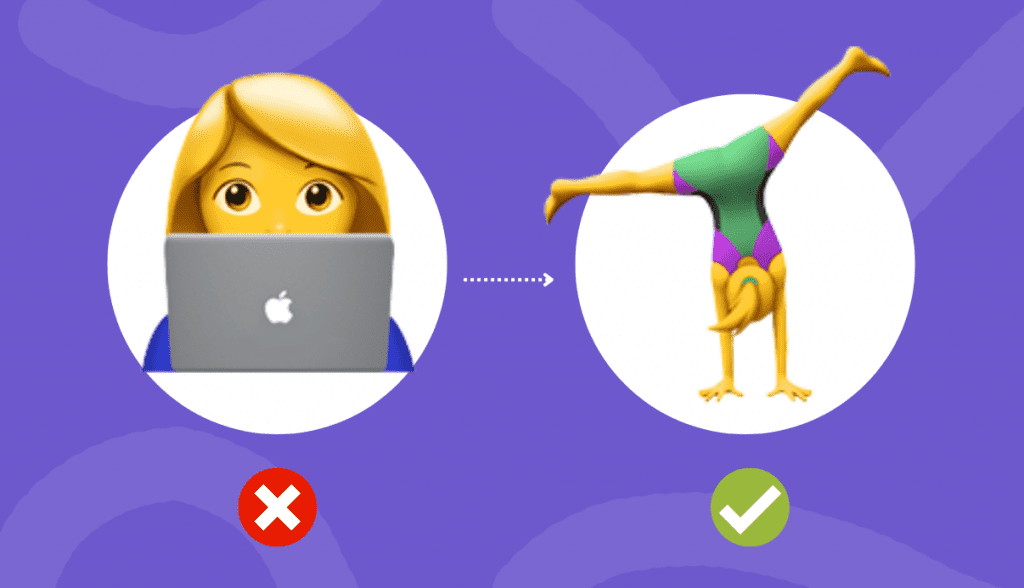
The average person spends more than 147 minutes a day on social media, which is around 10% of their day. That’s almost 75 hours, which is three days of your month. Even so, only 5% of American adults work out for 30 minutes every day, which is 2% of the day.
While amusement may be good, people who use social media, on the other hand, are linked to low self-esteem, depression, anxiety, and bad sleep. You can keep track of how much you use your phone by setting limits for screen time and even specific apps.
On top of that, replacing social media with healthy activities is a good idea. For this, we recommend using checklists and habit trackers. For example, here’s a 12-week training plan which you can edit and print.
Complaining with gratitude

Most people don’t understand how important gratitude is to a happy life. Life doesn’t get easier, but we get stronger when we change how we look at problems by noticing all the little good things around us. Make a good list and look at it every day. Also, think about what you want and be very clear about it. Over time, a positive, focused mind will get what it wants.
Overthinking with action
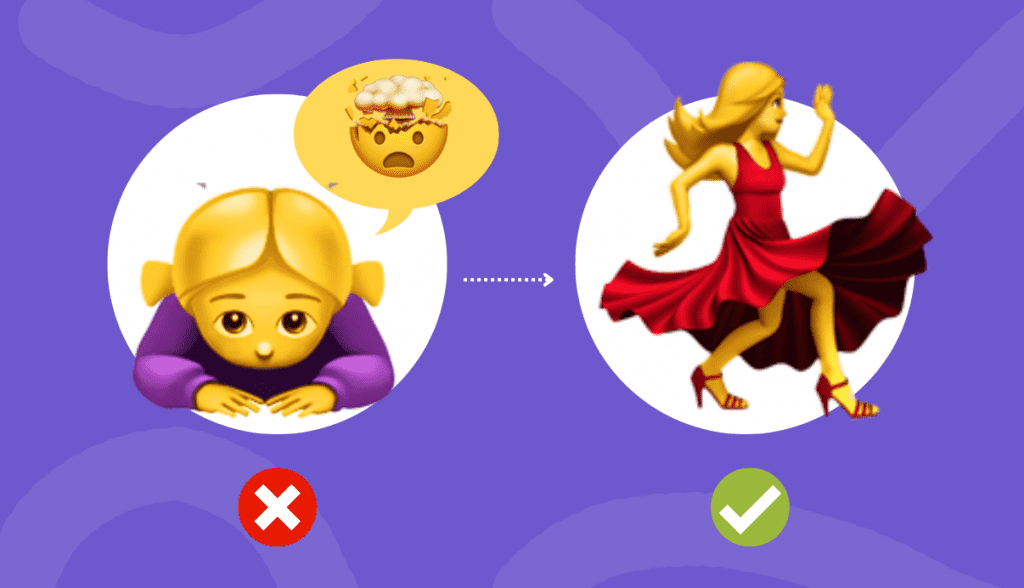
Overthinking may not appear to be a negative trait at first. It’s great to think, don’t get us wrong. However, it might become problematic if you engage in it excessively. It might even harm your mental and emotional health.
Being more aware of your thoughts is the first step to stopping yourself from overthinking. Of course, we don’t expect you to stop all of your thoughts. That’s just not possible. You can, however, become more aware of the kinds of thoughts you have and learn how to observe them.
Think about how you start your day. A busy morning makes the rest of the day hectic and not very productive. Because of this, it’s better to start your day with a calm mind. You’ll feel more clear and ready for the day ahead when you do grounding activities like meditation, yoga, writing in a journal, and cardio exercise. More importantly, it makes it less likely that you will start thinking in ways that are insufficient for you.
That’s when you might need to look into the topic of the best checklist tools to create various types of checklists. For example, to plan and adopt cardio workouts, write to-do lists, etc.
Fake friends with mentors

If you avoid negative people and fake friends, your life will be much better. If you have more positive, honest people in your life, you’re more likely to reach your goals faster.
Final thoughts
In the past, your bad habits may have been strong enough to control your life, feelings, or thoughts. It will be a big win if you can beat these habits, but don’t get too caught up with the end goal.
Commitment has been shown to help people break bad habits by putting the plan ahead of the goal. Yes, it’s good to have a goal in mind and not forget it, but it’s even more important to know how you’ll get there.
Try some of these ideas to help you stick to your plans:
- Set goals for each day or each week with checklists and habit trackers
- Praise yourself and celebrate when you reach your goals.
By committing to your plan, you’ll be more likely to stick with it and stop your bad habit for good rather than give up.. Good luck!
